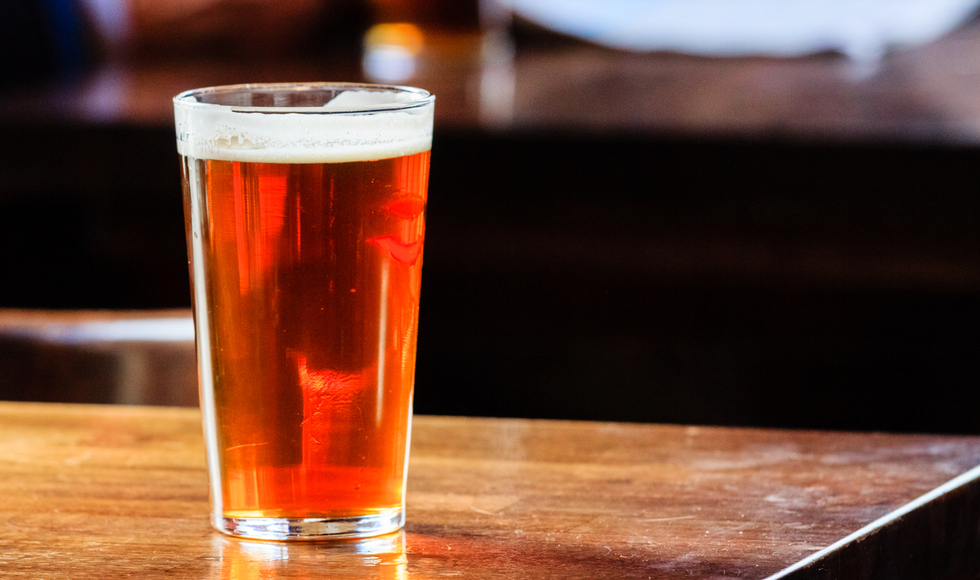Quench your thirst for knowledge at Pint of Science

Image by Shutterstock/kyrien
Ready to quench your thirst for knowledge?
From May 20 – 22, Pint of Science is bringing McMaster researchers and graduate students out of their labs and into a pub near you to share their cutting-edge research.
Is cholesterol good or bad for you? What can brain images tell us about addictions? How did scientists capture the first picture of a black hole?
Learn more about these and many other science-related topics that impact our everyday lives and shape our understanding of the world around us.
This free public event, organized by McMaster graduate students with the support of the President’s office and the McMaster’s Department of Physics and Astronomy, will take place in three pubs across Hamilton including Artword Artbar, Redchurch Cafe + Gallery, and Democracy.
Each night, two short presentations will be given by researchers at each location. Community members can also take part in nightly trivia quizzes, live experiments, science slams and more.
See full list of talks and book tickets
Talks include the following, plus many more:
Is a big rock in space coming to destroy us all? The threatening, the nonthreatening and the straight up make-believe
Ben K. D. Pearce (Ph.D. candidate physics & astronomy – astrobiology McMaster University)
Have you ever seen in the news, or heard from a friend, that a big space rock is going to hit or nearly miss the Earth? Maybe you’ve even heard stories of numerologists that regularly predict the precise date of the apocalypse. Should we be afraid for our lives and the future of humankind? Pearce will answer these questions by distinguishing the big rocks in space that could potentially impact the Earth from the ones that are unlikely to even come close; as well as the big rocks that exist in the Solar System, from the ones that are only make-believe.
He said, She said
Lyn Turkstra, professor of rehabilitation science, assistant dean, speech-language pathology
Are women better at social thinking? Female superiority in all things social is a common stereotype in Western society, especially in regard to social communication. In this talk Turkstra will ask if current data support this stereotype, and consider implications for men and women with social communication disorders.
Blood, ketchup, and other complex fluids
Adam Fortais, PhD candidate in physics
They say blood is thicker than water… but how much thicker, and why? In this talk Fortais will dive into the complex world of fluid dynamics exploring how microstructure within fluids lead to large-scale effects, and why ketchup actually makes pretty good fake blood.
Babies, bugs and the building blocks of health
Deborah Sloboda, professor, biochemistry and biomedical sciences and Mary Barker, professor
Does what your mother eats during pregnancy play a role in whether you are healthy or develop disease as an adult? This talk will look at mothers and fathers, studying what they eat, and what they do, and how this affects the baby’s development, which then impacts its disease risk later in life. They study how stress, nutrition and even how gut bacteria during pregnancy play a role in health and disease of children. The Mothers to Babies (M2B) Study takes biological discoveries and translates them into public health interventions, developing ways to improve the health of pregnant women and children.
The World is Your Telescope: Our first ever image of a supermassive black hole
Toby Brown, post-doctoral fellow, physics and astronomy
On April 10 2019, astronomers released the first image ever taken of a black hole – a supermassive beast lurking at the centre of galaxy M87. By discussing at the science and scientists behind the image, Toby will show why humankind cares about this amazing result and what more it can help us understand.
Demystifying Autism
Stelios Georgiades, assistant professor, psychiatry & behavioural neurosciences and co-director, McMaster Autism Research Team
Autism Spectrum Disorder (ASD) is a heterogeneous neurodevelopmental condition. In this session Georgiades will: (a) share empirical findings on the heterogeneous nature of ASD; (b) discuss how the concept of chronogeneity can advance ASD science; and (c) discuss how interdisciplinary collaborations that integrate research and clinical practice can move researchers closer to more precise and adaptive models of care to help launch all children with ASD on a positive trajectory toward optimal outcomes.
About Pint of Science
Pint of Science is a non-profit organization, based the UK, which quickly took off around the world after it was created in 2013. In 2018, 270 cities worldwide organized Pint of Science talks with more than 120,000 people attending. Now in its fourth year in Canada, the event is organized by more than 150 volunteers, mainly graduate students, who are driven by their passion for science.


